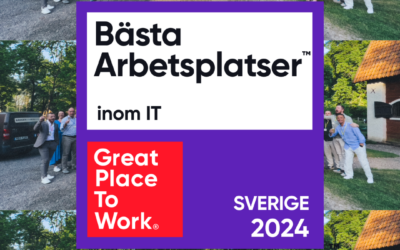AI assistants at the forefront:
Google’s Project Astra
Google’s Project Astra are redefining how we interact with technology both in personal and professional contexts. These innovations are not only enhancing our interactions with AI but also deeply integrating AI into our daily routines and business operations.
Google’s Project Astra: revolutionary AI interactions
Google’s Project Astra, powered by the AI model Gemini, showcases the potential of multimodal AI. Astra can understand and process various types of inputs—voice, text, and video—making it a versatile assistant for real-time interaction and support.
At the recent Google I/O demonstration, Astra displayed its capability to scan an office environment through a camera and locate objects like glasses, illustrating its practical applications in everyday tasks. This feature extends beyond simple object recognition to identifying faces, moods, and assisting with complex tasks like planning trips or managing shopping lists based on contextual understanding.
Social and ethical considerations
The benefits of advanced AI assistants are significant, but they come with notable risks. Ethical concerns around privacy and dependency are critical. As AI becomes more integrated into our lives, the potential for over-reliance and reduced human-to-human interaction increases. Additionally, the extensive data collection required for these AI systems to function effectively raises important questions about data privacy and security.
The fierce competition among tech giants like Google, Microsoft, and OpenAI further complicates these issues. The rapid pace of AI deployment necessitates robust discussions about long-term societal impacts and the need for regulatory frameworks to ensure responsible use. For instance, Google’s integration of Gemini into services like Gmail and Google Photos aims to enhance user experience but also involves extensive data collection, which must be handled responsibly.
Future prospects and business integration
Looking ahead, the potential for AI assistants is vast. Future advancements are likely to make interactions even more seamless and natural. In the business realm, AI assistants are poised to become indispensable tools for customer service, project management, and creative collaborations.
Google’s new creative tool, Veo, which generates videos from text prompts, exemplifies the innovative potential of AI in content creation. This democratizes creativity but also raises questions about intellectual property and the role of human creators in an AI-enhanced world.
Conclusion
AI assistants powered by Google’s Project Astra are transforming our interactions, offering exciting possibilities alongside new challenges. As we embrace these technological advancements, it is crucial to consider their ethical and social implications carefully. The future of AI assistants is bright, but it is up to us to ensure their integration enhances human life rather than diminishes it.
By managing risks and leveraging benefits, we can create a future where AI assistants are valuable partners in our personal and professional lives.
News. Insights. Thoughts.
Elvenite ranked as one of the best places to work in the IT industry in 2024
Elvenite ranked as one of the IT industry's Best Workplaces 2024 Elvenite has been named one of Sweden's Best IT Workplaces for 2024, a prestigious award from Great Place To Work®. Elvenite is ranked 15th out of 25, celebrating our outstanding workplace culture and...
When milk production flows steadily, year-round
Ensuring steady milk production all year round with AIDid you know that milk production fluctuates significantly throughout the year? While we, as consumers, buy milk at the same pace regardless of the season, dairies like Valio face major challenges. During the...
How we use word embeddings and AI: from seating arrangements to data analysis
How we use word embeddings and AI: from seating arrangements to data analysisCreating the perfect seating arrangement is a challenge we can all relate to, whether it’s a private party or a large corporate event. Should I seat Anna next to Henrik, or will she be...



